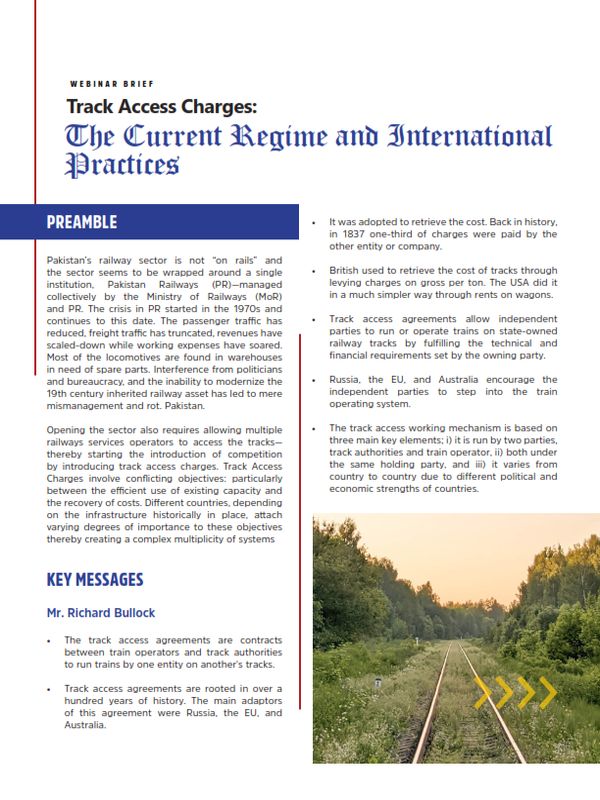Track Access Charges: The Current Regime And International Practices (Webinar Brief)
PREAMBLE
Pakistan’s railway sector is not “on rails” and the sector seems to be wrapped around a single institution, Pakistan Railways (PR)—managed collectively by the Ministry of Railways (MoR) and PR. The crisis in PR started in the 1970s and continues to this date. The passenger traffic has reduced, freight traffic has truncated, revenues have scaled-down while working expenses have soared. Most of the locomotives are found in warehouses in need of spare parts. Interference from politicians and bureaucracy, and the inability to modernize the 19th century inherited railway asset has led to mere mismanagement and rot. Pakistan.
Opening the sector also requires allowing multiple railways services operators to access the tracks— thereby starting the introduction of competition by introducing track access charges. Track Access Charges involve conflicting objectives: particularly between the efficient use of existing capacity and the recovery of costs. Different countries, depending on the infrastructure historically in place, attach varying degrees of importance to these objectives thereby creating a complex multiplicity of systems




